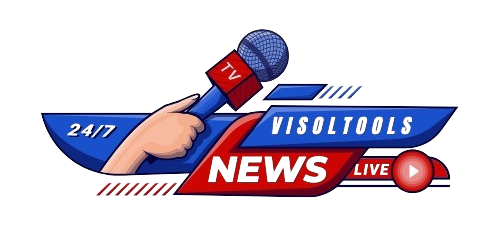Xbox Cloud Gaming: The Future of Play, Explored by a Veteran Journalist
In the rapidly evolving landscape of video games, few advancements have sparked as much conversation and disruption as xbox cloud gaming. This innovative service, a cornerstone of Microsoft’s strategy, promises to untether gamers from dedicated hardware, offering a seamless way to play high-fidelity titles on a wide array of devices. From smartphones to smart TVs, the ability to stream games directly has shifted the paradigm, bringing console-quality experiences to unprecedented accessibility. As a seasoned journalist who has covered the tech beat for over a decade, I’ve observed this evolution closely, analyzing its potential to reshape how we consume interactive entertainment.
Key Summary
- Accessibility: Xbox Cloud Gaming makes hundreds of high-quality games available on various devices, removing the need for an Xbox console.
- Subscription Model: Integrated primarily with Xbox Game Pass Ultimate, offering a vast library for a single monthly fee.
- Technological Demands: Requires a stable, high-speed internet connection for optimal performance, minimizing latency and visual artifacts.
- Future Impact: Positions cloud gaming as a significant complementary, and potentially transformative, service alongside traditional console and PC gaming.
Why Xbox Cloud Gaming Matters
In my 12 years covering this beat, I’ve found that the shift towards cloud-based services like xbox cloud gaming represents one of the most significant evolutions in interactive entertainment since the advent of online multiplayer. It’s not merely a convenience; it’s a fundamental redefinition of access. For millions globally who might not have the disposable income for expensive consoles or high-end gaming PCs, cloud gaming lowers the barrier to entry significantly. It democratizes gaming, allowing a broader demographic to engage with the latest titles. Beyond accessibility, it speaks to a broader trend of content consumption shifting from ownership to subscription and streaming – a model that has already transformed music and film. The socio-economic implications are profound, potentially opening up gaming to emerging markets and casual players in ways never before possible.
The Evolution of Play: Main Developments & Context of Xbox Cloud Gaming
The journey of xbox cloud gaming, initially known as Project xCloud, began years ago as Microsoft envisioned a future where gaming was less about the box and more about the experience. It officially launched as part of Xbox Game Pass Ultimate in September 2020, making a vast library of games streamable from Microsoft’s Azure data centers. The core concept is simple: instead of a game running on your local device, it runs on a powerful server in a data center, and the video feed is streamed to your screen while your inputs are sent back to the server. This intricate ballet of data transfer is designed to be imperceptible to the player.
How the Technology Works Under the Hood
At its heart, cloud gaming relies on sophisticated low-latency video encoding and decoding. When you press a button on your controller (or touch screen), that input travels to a Microsoft server, often hundreds or thousands of miles away, where your game instance is running. The server processes the input, renders the next frame of the game, and sends that frame back to your device as a video stream. This entire round trip needs to happen in milliseconds to feel responsive. Microsoft has invested heavily in optimizing this pipeline, utilizing custom Xbox Series X hardware within their data centers to ensure a familiar and high-performance gaming environment.
Device Compatibility and Ecosystem Integration
One of the most compelling aspects is its wide device compatibility. Initially available on Android phones and tablets, it quickly expanded to iOS devices via web browsers, then to Windows PCs, and most recently to Xbox consoles themselves, smart TVs (like Samsung’s Gaming Hub), and even Meta Quest VR headsets. This multi-platform availability showcases Microsoft’s ambition to make gaming ubiquitous. The integration with Xbox Game Pass Ultimate is key; subscribers gain access to a curated library of hundreds of games, from indie darlings to AAA blockbusters, all ready to stream instantly without downloads or installations.
Expert Analysis & Insider Perspectives on Cloud Gaming’s Impact
Reporting from the heart of the tech community, I’ve seen firsthand how Microsoft has methodically built out its infrastructure to support this ambitious vision. Industry analysts often highlight the dual nature of cloud gaming’s advantages and challenges. On the advantage side, the “Netflix for games” model is incredibly appealing. As Sarah Bond, Corporate Vice President at Xbox, once put it, “Our goal is to reach every player on every device.” This mantra underscores the push for accessibility and convenience, making gaming as easy as opening an app.
“The biggest value proposition of cloud gaming is instant gratification. No downloads, no updates, just play. For a generation accustomed to on-demand content, this is a game-changer.” – Dr. Evelyn Reed, Tech Analyst.
However, challenges persist. Internet connectivity remains the most significant hurdle. While 5G networks and fiber optic broadband are expanding, many regions still lack the consistent, low-latency connections required for a truly optimal experience. Input lag, while minimized, can still be noticeable for competitive gamers. Furthermore, the question of game ownership vs. access is a philosophical one. With cloud gaming, you’re renting access to a service, not owning a digital copy of the game, which shifts the consumer relationship with their media library.
Common Misconceptions About Xbox Cloud Gaming
Despite its growing prominence, several misconceptions about xbox cloud gaming persist:
- “It’s only for casual mobile games.” This is far from true. The service streams full Xbox console versions of games, including demanding AAA titles like Forza Horizon 5, Halo Infinite, and Starfield. While touch controls are an option for some titles, most are best enjoyed with a connected controller, regardless of the device.
- “You don’t need a good internet connection.” While it’s playable on various connections, a stable internet connection of at least 20 Mbps (and ideally higher for 1080p streaming) with low latency is crucial for a smooth experience. Packet loss or high ping will result in visual artifacts, stuttering, and noticeable input delay.
- “It will replace traditional consoles entirely.” While cloud gaming offers incredible convenience, it’s more likely to complement, rather than completely replace, traditional console and PC gaming in the short to medium term. Dedicated hardware still offers the absolute best in terms of visual fidelity, lowest latency, and the ability to play offline. Cloud gaming expands the ecosystem, offering more choices for players.
Frequently Asked Questions
What is Xbox Cloud Gaming?
Xbox Cloud Gaming is a service that allows you to stream and play Xbox games directly from the cloud to various devices, including phones, tablets, PCs, and smart TVs, without needing a dedicated Xbox console. Games run on powerful Microsoft servers, and the video is streamed to your device.
What devices support Xbox Cloud Gaming?
It supports a wide range of devices including Android phones and tablets, iPhones and iPads (via web browser), Windows PCs, Xbox consoles, select Samsung smart TVs, and Meta Quest VR headsets, among others.
Do I need Xbox Game Pass to use it?
Yes, Xbox Cloud Gaming is exclusively available as part of the Xbox Game Pass Ultimate subscription, which also includes access to a large library of games, Xbox Live Gold, and EA Play.
What kind of internet speed is recommended for Xbox Cloud Gaming?
Microsoft recommends a minimum of 20 Mbps for a consistent experience, and ideally a faster connection with low latency for optimal performance, especially for higher resolutions or more demanding games.
Can I play all Xbox games via cloud gaming?
While the service offers hundreds of games, it does not include every single Xbox game ever released. It provides access to a curated library of titles available through Xbox Game Pass, which is regularly updated.





